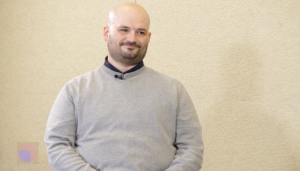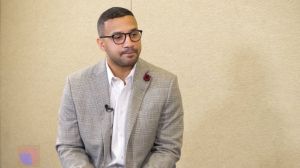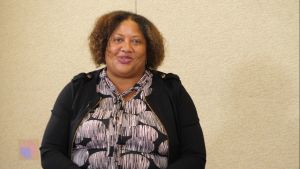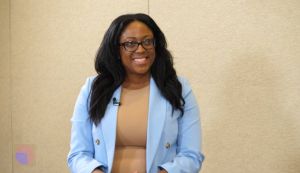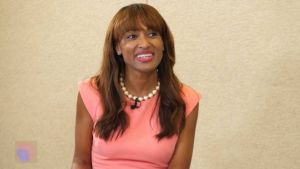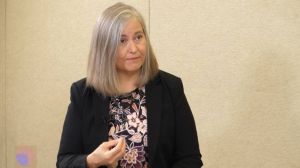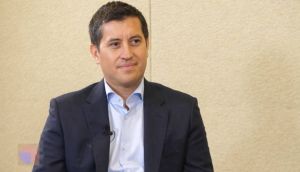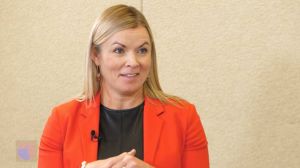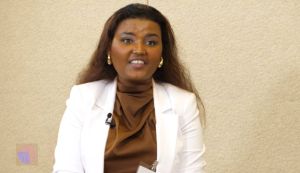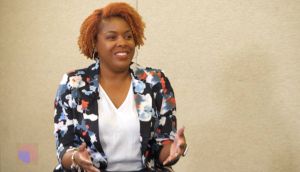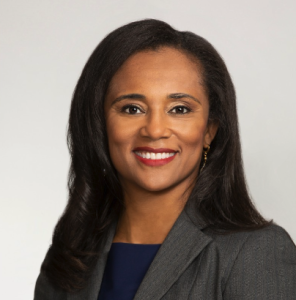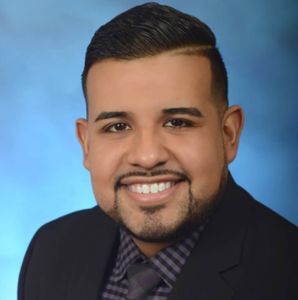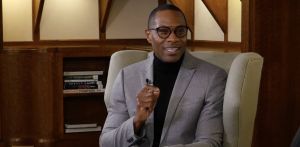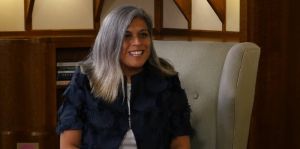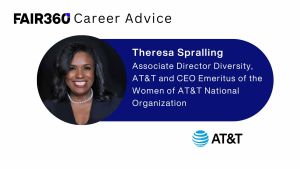Innocent Shumba is an Assurance Partner in EY’s Technology Industry practice with over 14 years of experience serving private and publicly held high-technology companies, ranging from fast growing pre-IPO entities to large multinational firms.
Shumba was awarded a bachelor’s degree and master’s degree in accounting from Brigham Young University, and is a Registered Certified Public Accountant. He is currently a member of the Black Professional Network group’s (EY resource network group) steering committee and Executive Partner Sponsor of EY’s signature program College Map, and serves as an advisory board member for Emergination Africa (a non-profit organization focused on mentoring and developing African youths).
DI: At what age did you know you wanted to become an accountant
Shumba: My upbringing is unlike many of my peers. I grew up in a village with very few role models and accountants. So I was not exposed to the accounting profession earlier on in my life. In fact, the only three professions that I knew of at the time were being a peasant farmer, a teacher or a soldier. It was not until I was in junior high school, when my school had a guest teacher who introduced me to accounting. He only came for one semester and taught accounting and other subjects. I took the class and I really enjoyed it because of the passion my teacher had for the subject. When the teacher left, I went back to focusing on mathematics. When I came to the U.S. for college, I wanted to do engineering or business, but then changed my mind when I found out that Brigham Young University (BYU) had one of the best accounting programs in the nation. The seed was planted for me in junior high, but it wasn’t until I was at BYU that it hit me that I wanted to be an accountant.
DI: Did you have role models that guided you to this field
Shumba: There were two critical role models who guided me into the accounting field. One was my teacher who I mentioned above. He taught me my first accounting class and did it with such authentic enjoyment that it left a very strong impression on me. My other role model was my grandmother, who raised me. My grandmother didn’t have much she was a peasant farmer in my village, but yet she was able save little by little to buy herself a few cows, goats, donkeys, etc. She never went to school and didn’t even know how to count. Yet, somehow she had a great deal of business savvy. What I’ve learned from this experience with my grandmother is that sometimes you don’t have to look that far for role models. They come in different shapes and forms and you just need to be willing to recognize one who you can learn from. I was definitely taught early on in my life how to be business-minded. I believe that making the decision to be an accountant when I got to BYU was largely because of people like my grandmother and my teacher, who shaped my career interests in business when I didn’t even know it myself.
DI: Did you have any insights into the racial diversity of the industry
Shumba: I grew up in Zimbabwe, which was colonized by the British and almost 90 percent of the white collar jobs (including accounting) were occupied by either the British or expatriates. This was true across most industries in my country. Though I didn’t know much about the accounting industry as a student, I was keenly aware that it lacked racial diversity. I think this realization largely impacted my decision to go into the accounting industry and help change the status quo. This is also one of the reasons why it’s so important to me to be a partner sponsor for our annual Black History Month Executive Roundtable discussions at EY. I want other young professionals from diverse backgrounds to see me and our incredible panelists from leading companies and feel inspired, less isolated and empowered to fill the voids they see in the profession. My colleague, Udanda Clark, the moderator from our recent EY Black History Month roundtable discussion in San Francisco, offered some great advice to the audience: “Leverage your differences into opportunities,” and I couldn’t agree more. It’s easy to get discouraged when we don’t see diversity and inclusiveness in action, but I used it to propel my career, and it’s been a very powerful motivator.
DI: Why is diversity important to you
Shumba: Diversity is critical to me for several reasons. The world we live in today has changed significantly and, as such, our surroundings reflect the very diverse world we live in. There are notable benefits to teams or organizations that embrace diversity and inclusion. When you have people who think differently around you, it helps to enrich the conversation; it allows you to expand your thinking, and to come up with better solutions. Most high-performing teams or successful organizations are those that value diversity and practice inclusion. During my 16-year tenure at EY, I have witnessed firsthand the benefits of working with diverse teams and this has played a critical role in advancing my career and my ability to provide exceptional service and solutions for my clients.
DI: How did mentors and sponsors help you in your career
Shumba: I have been blessed with great mentors and sponsors since the first day I joined EY. My mentors took their time to help me see the bigger picture of what my career was going to look like. They became my career advisors who perfected the skill sets required for my growth by making sure I was getting the right experiences and building my personal brand. My mentors also helped me by removing obstacles that were in my career path. They were always willing to share their life experiences with me and any mistakes they made earlier in their careers and what I needed to do to avoid making similar mistakes. They were not afraid to provide me with constructive feedback either. In contrast, my sponsors were those who made sure that they spent their capital equity on me. They regularly sounded the horn or gave my work visibility with leadership. They had a seat at the table and they made sure they used it to advocate for me, to bring me new opportunities and push me out of my comfort zone which made all the difference.
DI: Were you a good mentee
Shumba: I believe I was a good mentee because I made sure that I excelled on things that were under my control in order to make it easier for my mentors and sponsors to champion my cause and advocate for me to leadership. I always had a learning mindset, and was willing to put in the hard work to make my mentors and sponsors proud. I was never shy in asking for challenging assignments or volunteering for more work, even when I still had a full plate. These complex assignments really pushed my limits, but also provided me with the opportunity to acquire the new skill sets I needed to build my brand. I saw it as my responsibility to own my career, to earn my mentors’ trust and to make their jobs easier and these same characteristics for a good mentee apply today.
DI: And could you have advanced without a sponsor
Shumba: No. There is an African proverb that says it takes the whole village to raise a child. The same can be said about my career trajectory and my success today. It would be a lie to say that I did it all by myself. It took many people along the way who saw the potential in me and who invested in me. My sponsors played a critical role in removing the stumbling blocks in my way. They were always two to three steps ahead of me, guiding me and illuminating my path to leadership. There are many sponsors who have contributed in some way to my success, but the following are a few of my EY colleagues who I’d like to thank for paving the way for me: Lee Henderson, Kailesh Karavadra, Rick Fezell, Dianne Glynn, Scott Whelton, Mark Secker, Steve Maier and many others. What’s notable when you read these names and see my sponsors is that many of them don’t look like me. We all need sponsors, and if you do the right thing, your sponsors will come from places you least expect. Seek sponsors who will challenge you to get out of your comfort zones, advocate for you and have a seat at the table and are not afraid to use their influence for your cause.
DI: What are five things high potentials should avoid
Shumba: High potentials should avoid the following:
- Having a negative attitude about their careers.
- Complacency staying in their comfort zone for too long and not taking enough risks.
- Over promising and under delivering and not executing on their promises.
- Shying away from constructive feedback.
- Forgetting to invest in themselves and the community.


